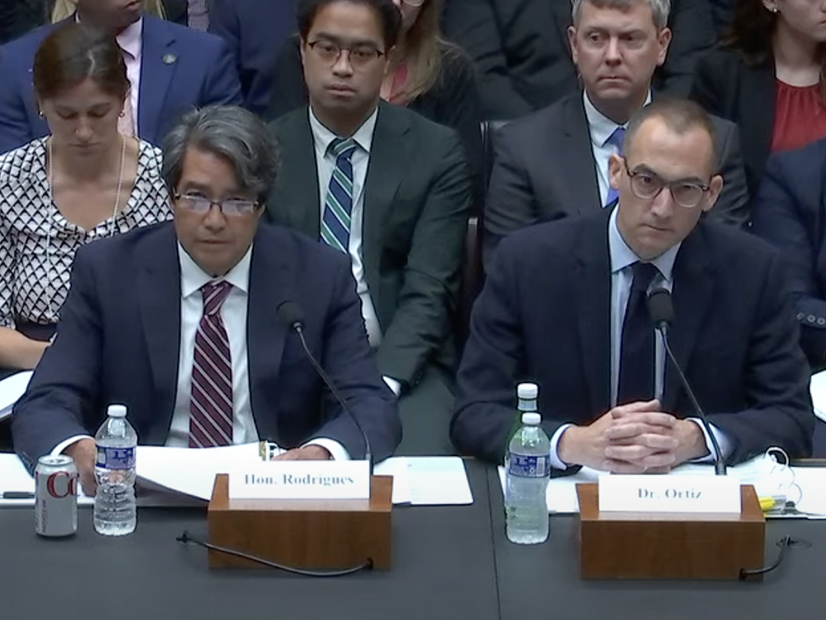
The partisan divide on energy efficiency and other policies was on display at a hearing Wednesday of the House Energy and Commerce’s Energy, Climate and Grid Subcommittee.
The panel examined a series of bills from Republicans, including the Guaranteeing Reliable Infrastructure Development (GRID) Act from Subcommittee Chair Jeff Duncan (R-S.C.), which would require any federal agency implementing a rule that affects reliability to bring it before FERC. Other legislation would delay a DOE proposal to implement new efficiency standards for distribution transformers for five years and limit the department’s ability to issue new efficiency standards across the board.
Duncan cited the recent NERC report that listed energy policy as threatening reliability as a reason to support his bill requiring more oversight by FERC. (See ERO Adds Energy Policy to Risk Priorities List.)
“There’s a looming resource adequacy crisis. We all need to take this morning seriously and do more to ensure reliability and affordability of the energy system,” Duncan said. “FERC has allowed the distortion of market incentives such as state and federal subsidies aimed at promoting the deployment of renewables to interfere with electricity price formation. This has contributed to the early retirement of reliable generation assets like nuclear and natural gas.”
EPA’s proposed power plant rule would add to the problem as it would limit the amount of time fossil plants can operate, he added.
The GRID Act is a broad proposal that would cover many potential government actions, making it hard to determine just how much work it would give to FERC, said David Ortiz, director of the commission’s Office of Electric Reliability.
“As a general matter, FERC and the ERO, NERC, have the necessary expertise to understand and comment on the potential effect of proposed regulatory actions on the reliability of the bulk power system,” Ortiz said. “However, fulfilling the goal of the GRID Act would require detailed, interconnection-wide modeling and analysis beyond FERC’s capability.”
FERC might not have access to the data needed to perform the studies required under the proposed bill, he added. Other organizations could do the analysis, with Ortiz pointing to DOE’s national laboratories.
Ranking Member Diana DeGette (D-Colo.) said everyone in the room agreed reliability is important and will be even more so in a warming world where summer power outages threaten lives.
“It’s clear, a reliable source of electricity is paramount to our nation’s health and well-being,” DeGette said. “I think that one of the ways to ensure we have reliable electricity is through energy efficiency.”
Increasing energy efficiency helps to stretch out the current energy supply to serve more consumers reliably, while also saving them money.
The Biden Administration has been implementing efficiency standards at DOE that would save up to $570 billion after DOE under President Trump missed dozens of deadlines under the law to either issue a standard or explain why none was needed. DeGette argued the bills before the committee do not deal with reliability.
“Instead, what I see is bills that in the name of reliability, would gut energy efficiency standards that are saving Americans money, and that are cutting down on our energy use,” she added.
Mid-Carolina Electric Cooperative CEO Bob Pauling in testimony came out against a proposed DOE standard that would require the industry to stop using standard “grain oriented electric steel” distribution transformers at a time when supply chains for the vital infrastructure already are stressed.
“The utility industry needs manufacturers to be 100% focused on increasing output, not adapting to new, government mandated efficiency requirements that are not technologically feasible nor economically justified,” he said in written testimony.
DOE Assistant Secretary for Electricity Gene Rodrigues noted that the transformer standard still is just a proposal, which the agency was required to take up under a consent decree, and said the department takes the issue of electric reliability and the need for more transformers seriously.
“That is why DOE expressly asked stakeholders for comment on timelines required for compliance with the proposed standard, as well as comments on the availability of key components,” Rodrigues said.
The efficiency standard is just part of DOE’s work on transformers. It also is working with the rest of the government and other stakeholders to help bolster the domestic supply chain for key grid components for decades to come, he added.
“We have provided national projections of the long-term demand growth for distribution transformers to provide America’s manufacturers with investment certainty that will help them to expand capacity,” Rodrigues said. “We have connected manufacturers with suppliers of difficult-to-source grid components. We have utilized legislation passed by this Congress to provide funds for distribution transformers, such as the $10 million in transformer rebates and $10 billion in 48C tax credits.”


